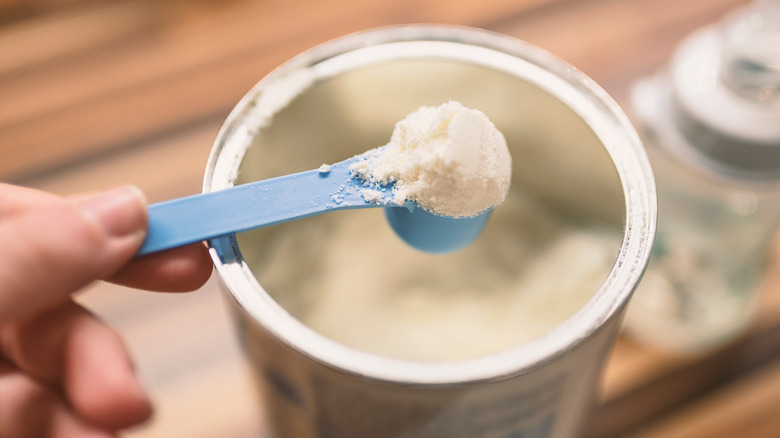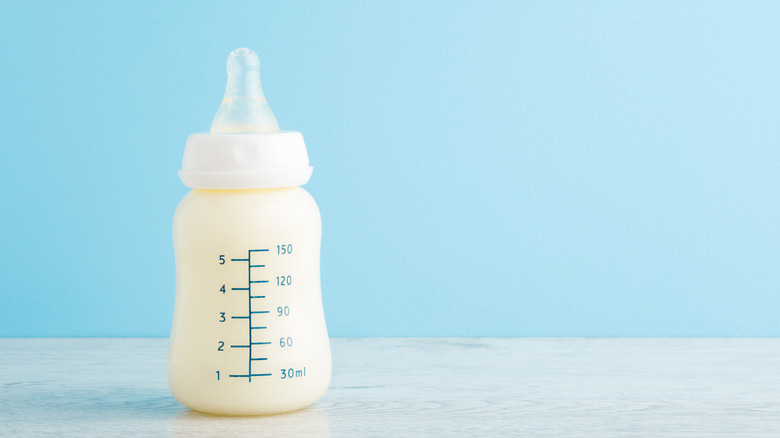Everything You Need To Know About The 2022 Baby Formula Recall
Even though it's only February, plenty of food items have already been recalled this year. Shrimp, frozen spinach, and enoki mushrooms — along with many other products — were all pulled from supermarket shelves in an effort to curb the ongoing listeria outbreak across the country.
Unfortunately, USA Today reports that the FDA just issued a warning about bacterial contamination in baby formulas manufactured by Abbott Nutrition. Potentially affected formulas include Elecare, Alimentum, and Similac. So far, four infants have become ill.
According to the FDA, formulas produced at the Abbott Nutrition plant in Sturgis, MI, may have been contaminated by salmonella and/or cronobacter sakazakii. Formula should not be used if "the first two digits of the code are 22 through 37; the code on the container contains K8, SH, or Z2; and the expiration date is 4-1-2022 (APR 2022) or later."
Formula codes can also be checked using Abbott Nutrition's product lookup webpage. Affected formulas can be refunded or replaced by visiting the Similac recall website or calling the company's customer service line.
The dangers of cronobacter sakazakii and salmonella
Although contaminated foods are without a doubt harmful to adults, bacterial infections are usually more severe in infants. Salmonella, a common cause of food poisoning, can cause fever and gastrointestinal distress. Symptoms typically start within six hours and can last up to a week, says the CDC.
Cronobacter sakazakii can cause fever, UTIs, diarrhea, and potentially sepsis or meningitis in infants younger than two months (via CDC). Parents should seek immediate medical help for infants suspected to be ill, as these infections are very serious and can be life-threatening.
Despite the formula recall and shortage, parents should refrain from diluting or making their own formulas, says Food Safety News. Cow milk, for example, cannot be digested by a child's stomach until they're around a year old. Unpasteurized milk can also infect youngsters with salmonella or listeria.
Instead, healthcare professionals recommend switching to another formula, at least for the time being. With food products being more heavily regulated, there are plenty of safe alternative formulas on the market.

